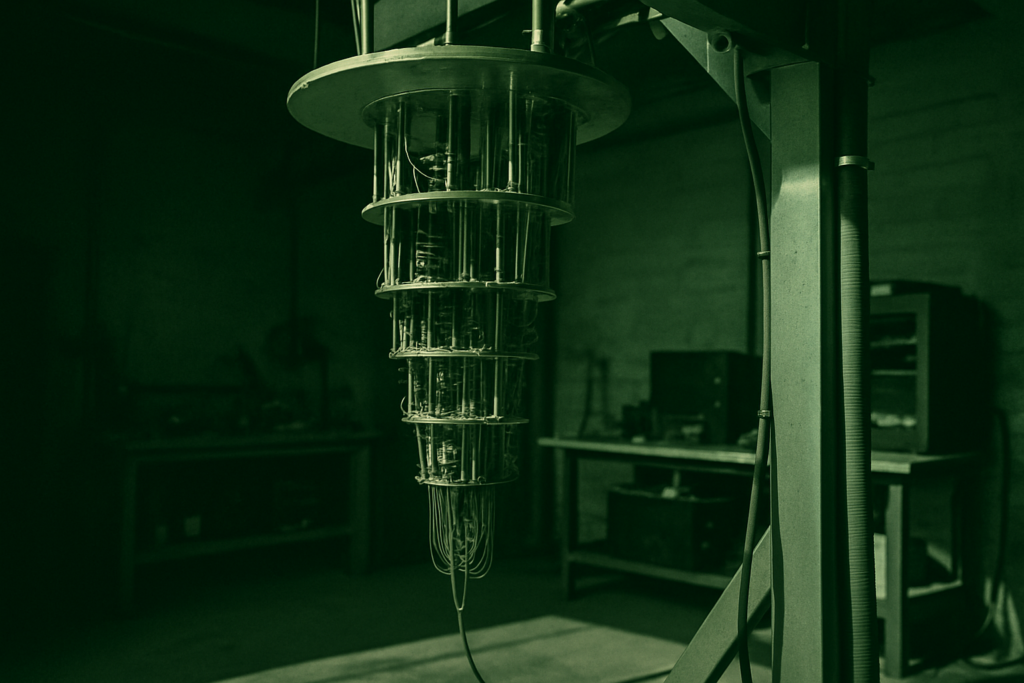As a tech enthusiast, I’m always on the lookout for the next big thing in the world of technology. From artificial intelligence to virtual reality, the future of tech is constantly evolving, shaping the way we live, work, and interact with the world around us. In this article, I’ll delve into some of the most exciting future tech trends that are set to revolutionize various industries and redefine our everyday experiences.
With advancements in machine learning and automation, the possibilities seem endless. From smart homes that anticipate our needs to self-driving cars that navigate our roads, the future is brimming with innovation. Join me as we explore how these emerging technologies are poised to transform the way we engage with the digital landscape and pave the way for a more connected and efficient future.
Exploring the Future Tech Trends
As an avid follower of technological advancements, I am constantly intrigued by the ever-evolving landscape of future tech trends. The rapid pace of innovation in areas like artificial intelligence, virtual reality, machine learning, and automation continues to reshape industries and revolutionize our daily lives.
Artificial intelligence (AI) stands at the forefront of this technological revolution, with its potential to enhance decision-making processes, streamline operations, and create personalized experiences for consumers. From predictive analytics to natural language processing, AI is becoming increasingly integrated into various aspects of our lives.
Virtual reality (VR) and augmented reality (AR) technologies are not just buzzwords anymore but are transforming how we interact with the digital world. Immersive experiences, virtual tours, and interactive simulations are just a few examples of how VR and AR are reshaping entertainment, education, and even healthcare.
Machine learning, a subset of AI, is unlocking new possibilities in data analysis, pattern recognition, and automation. From recommendation algorithms on streaming platforms to predictive maintenance in manufacturing, machine learning is driving efficiency and innovation across diverse sectors.
Automation, another key trend, is revolutionizing the way we work and live. From smart homes with connected devices to self-driving cars on our roads, automation is optimizing processes, increasing productivity, and changing the way we perceive technology’s role in our daily routines.
These future tech trends are not just shaping the future; they are redefining our present reality. Embracing these innovations opens up a world of possibilities for creating a more connected, efficient, and transformative future.
Evolution of Artificial Intelligence
Artificial intelligence is at the forefront of transforming industries and experiences. Advancements in machine learning are driving efficiency across various sectors through data analysis and automation.
Machine Learning Advancements
Machine learning is revolutionizing industries by enabling data-driven decision-making and streamlining processes. It enhances predictive analytics to provide personalized consumer experiences and improve overall operational effectiveness.
Rise of 5G Technology
I’m excited about the continuous advancements in technology, and one trend that stands out is the rapid rise of 5G technology. 5G signifies the next generation of wireless technology, promising faster speeds, lower latency, and the capacity to connect more devices simultaneously.
5G technology is set to revolutionize various industries, from healthcare to transportation and beyond. With its ultra-fast connectivity, 5G will enable breakthroughs in telemedicine, allowing for real-time remote consultations and surgeries. In smart transportation systems, 5G will facilitate seamless communication between vehicles, leading to improved traffic management and enhanced road safety.
The deployment of 5G networks will not only elevate mobile communications but also pave the way for the Internet of Things (IoT) to reach its full potential. IoT devices will operate more efficiently on 5G networks, enhancing smart home capabilities, industrial automation, and smart city initiatives.
As we embrace the era of 5G technology, the way we interact with data, devices, and each other is bound to transform significantly. This technological leap is not just about speed; it’s about ushering in a new era of connectivity and innovation that will redefine the possibilities of the digital world.
Impact of Virtual Reality and Augmented Reality
Exploring the realm of virtual reality (VR) and augmented reality (AR), I am fascinated by their profound impact on various sectors. VR and AR technologies are revolutionizing the way we interact with digital content, offering immersive experiences that blur the lines between the physical and virtual worlds.
Enhancing entertainment, education, and healthcare, VR and AR have paved the way for innovative solutions in diverse fields. In entertainment, VR headsets transport users to virtual environments, where they can engage with content in unprecedented ways. Education benefits from AR applications that overlay digital information onto the real world, enriching learning experiences. Moreover, in healthcare, VR simulations assist in training medical professionals and therapeutic interventions, improving patient outcomes.
The integration of VR and AR into daily life is reshaping consumer interactions and business operations. Companies are leveraging VR for product simulations, employee training, and virtual meetings, enhancing collaboration and efficiency. AR, on the other hand, enables interactive shopping experiences, where customers can visualize products in real-time using mobile devices.
As VR and AR technologies continue to advance, they will redefine how we perceive and engage with the digital realm, offering endless possibilities for creativity and innovation. From enhancing entertainment to revolutionizing healthcare, VR and AR are driving a transformative wave across industries, shaping the future of human-machine interactions.
Sustainability and Green Tech Innovations
Discussing sustainability and green tech innovations is crucial in today’s rapidly evolving tech landscape. As I explore future tech trends, it’s evident that a shift towards eco-friendly solutions is gaining momentum. Technologies that prioritize sustainability not only benefit the environment but also offer efficiency and cost-effectiveness. Let’s delve into some key aspects of sustainability and green tech innovations shaping the future:
Renewable Energy Sources
Renewable energy sources like solar, wind, and hydroelectric power play a significant role in reducing carbon emissions and mitigating the impact of climate change. Solar panels on rooftops, wind farms in strategic locations, and hydroelectric plants are becoming increasingly commonplace, transforming the energy sector towards a cleaner, more sustainable future.
Energy-Efficient Technologies
The integration of energy-efficient technologies in various industries is enhancing productivity while reducing energy consumption. Innovations such as smart grids, energy-efficient appliances, and LED lighting systems are paving the way for a more sustainable approach to energy usage, contributing to both cost savings and environmental preservation.
Waste Management Solutions
Advancements in waste management technologies are revolutionizing how we handle and recycle waste. From smart waste bins that optimize collection routes to innovative recycling processes that extract valuable resources from waste streams, sustainable waste management solutions are shaping a greener future for communities and industries alike.
Green Transportation Systems
The transportation sector is witnessing a shift towards green technologies, with electric vehicles (EVs), hydrogen fuel cell vehicles, and advancements in public transportation systems leading the way. By reducing reliance on fossil fuels and promoting clean energy alternatives, green transportation systems are driving towards a more sustainable and eco-friendly future of mobility.
Sustainable Architecture and Urban Planning
Innovations in sustainable architecture and urban planning are redefining the way we design and construct buildings and cities. Green building practices, such as LEED certification and energy-efficient design principles, are creating environmentally conscious structures that prioritize energy efficiency, indoor air quality, and overall sustainability. Urban planners are leveraging technology to create smart cities that optimize resources, reduce environmental impact, and enhance the quality of life for residents.
Environmental Monitoring and Conservation
Technological advancements in environmental monitoring and conservation are essential for safeguarding ecosystems and biodiversity. Solutions like IoT sensors for air and water quality monitoring, satellite imaging for deforestation detection, and wildlife tracking technologies are instrumental in preserving natural resources and mitigating environmental degradation, paving the way for a more sustainable coexistence between humanity and nature.
Embracing sustainability and green tech innovations is not just a choice but a necessity in shaping a more harmonious and resilient future. From renewable energy to smart waste management and green transportation, these technologies hold the key to a sustainable and environmentally conscious tomorrow. As we continue to prioritize sustainability in technological advancements, we can pave the way for a brighter and greener future for generations to come.


